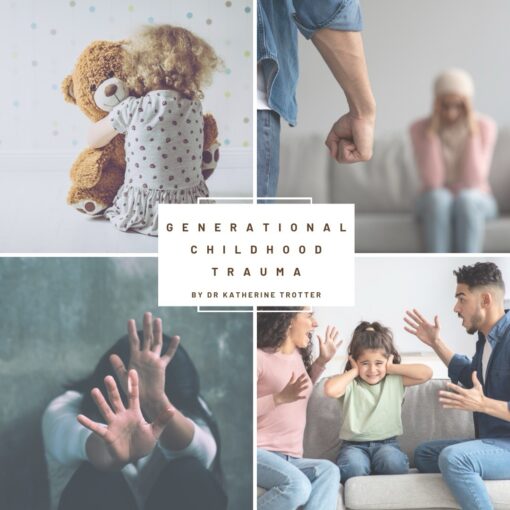Generational Childhood Trauma

Our relationships with our parents indeed have a significant impact on shaping who we are. How they interact with us, whether they fulfill our needs or not, and how they handle their emotions can greatly influence our coping mechanisms, self-esteem, and overall well-being.
However, it’s important to remember that many parents carry their own shame and generational trauma, which can be unconsciously projected onto their children. Even the most well-meaning parents can unknowingly pass on their emotional struggles. For instance, someone who grew up with an emotionally distant parent may find it hard to form bonds with emotionally available partners. Similarly, a person with a parent who was inconsistent or hypocritical may develop anxiety or perfectionism. Someone with a parent who abandoned them or was consistently unreliable may struggle with trust issues, while a person with a parent who had anger issues may also struggle with anger management and expressing their feelings. It’s also possible that someone with a parent who lied to them may have a hard time setting healthy boundaries in their own relationships.
Navigating the impact our parents have on us may not always be easy. However, recognizing how their behavior may have affected us is a significant step towards healing and personal growth. Understanding that our past experiences and parents’ behavior do not define us is crucial. We can work towards building healthier coping mechanisms and relationships.
So, what is Generational Trauma
Generational trauma is a widespread issue that deeply affects families and communities. Trauma can be passed down through generations, resulting in intergenerational trauma. Epigenetic changes can occur in a person’s DNA, causing changes in how genes function, which can be inherited. This creates a difficult cycle to break. It is crucial to recognize the impact of trauma and work towards healing, both for ourselves and future generations. Trauma can have a debilitating impact on an individual’s psychological, emotional, and physical health, leading to various negative effects such as emotional instability, sleep disturbances, substance abuse disorders, and even self-harm.
Furthermore, children whose parents have experienced trauma are at a higher risk of growing up with unstable, emotionally distant, or anxious parents. This perpetuates a cycle of trauma, where the same kind of behavior is passed down to the next generation. It is essential to understand the impact of trauma and work towards breaking the cycle, ensuring a healthier future for ourselves and our loved ones.
It’s important to acknowledge that our parents were flawed individuals who may not have had the emotional maturity to provide us with what we needed. Nevertheless, as adults, we can still work towards healing ourselves and developing a healthier mindset.
